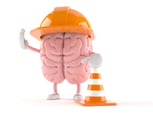Welcome to the rollercoaster ride affectionately known as parenting teenagers. I’m here to share the wisdom I've learned the hard knocks way. So, grab your popcorn (or stress ball) and prepare to learn from my parenting mistakes.
Teenagers are like Wi-Fi signals. Sometimes, they have the strongest connection when you least expect it; other times, they’re just mysteriously unavailable. The teen-parent connection is brilliantly strong one moment and bafflingly out of reach the next. You can learn from my missteps as someone who’s navigated these erratic signals without the proper handbook (because teenagers don’t come with one!).
Estimated reading time: 6 minutes Heartmanity is proud to partner with outstanding companies that we wholeheartedly recommend so this post may contain affiliate links. You can read our full disclosure here.
Heartmanity is proud to partner with outstanding companies that we wholeheartedly recommend so this post may contain affiliate links. You can read our full disclosure here.
Key Takeaways
- Cultivate trust rather than seeking to control your teenager.
- Prioritize meaningful conversations over lectures.
- Empathize and validate your teens' emotions.
- Encourage problem-solving skills over giving quick fixes.
- Acknowledge and respect teens' unique challenges.
Navigating teenagehood is like trying to decipher a password-protected smartphone. My adventures have ranged from attempting to decode the silent treatment to misinterpreting the mood swing notifications. Whether you’re a new recruit to teenage parenting or you’ve been in the trenches for years, I promise you’ll find a little solace in hearing my blunders (after all, I’m a parenting coach and emotional intelligence expert!).
Let’s laugh, learn, and maybe even, shed a tear together as we navigate the complex, rewarding job of parenting teenagers—no Wi-Fi required.
Parenting Teens: 5 Under-the-Radar Parenting Mistakes to Avoid
Picture this: you're navigating the teen years as a parent, and your sweet child transforms into a mythical creature—they feel like a stranger. Just when you think you have a few things figured out, your teen turns on a dime, and you’re left feeling estranged and helpless again. As a 35-year veteran parent, a parent coach for decades, and an emotional intelligence expert, I’ve heard and seen the effects of what seem to be innocuous parenting mistakes but confound parents and incite teen rebellion.
I don't have to tell you that teens are up against great odds. Every parent who has a teenager dreads the call of a poor decision that becomes life-threatening. A couple of years ago, I supported several teens when five classmates were killed in a tragic car accident.
That’s why we want to hold on tight. I get it!
Add the fact that a teen brain is still under construction, and you have every right to be concerned. But the secret of safety is different than you may think.
Below are some under-the-radar parenting mistakes, often based on fear that dramatically affect the teen-parent connection.
 MISTAKE: Playing Puppeteer - seeks the strings of control
MISTAKE: Playing Puppeteer - seeks the strings of control
Like puppeteers, parents sometimes try to control their teen’s every move. There are many names for it: drone parenting, helicopter parenting, authoritarian parenting, and even emotionally immature parenting. By any name, it doesn’t work!
We need to teach teenagers self-control through skill-building.
When parents control their children, teens don't learn how to control themselves.
Therefore, it’s critical to strengthen your relationship with them instead of seeking to control. Teens are not marionettes, and parents aren't invisible. This attempt to patrol or control backfires when teens who crave autonomy cut the strings—they can shut you out of their lives with “I don’t know,” not calling when late, disobeying house rules, isolating themselves in their bedrooms, drowning out their family with headphones, spending too much time at a friend’s house, etc.
What's the key?
TRUST.
Yes, creating this relationship resource is tricky and requires great love and patience.
You might be asking:
- “How can I trust my teen who values peers over me?”
- Why would I trust someone whose risk-taking behavior is on the rise?
- Can I trust my teen when they make such poor decisions?
- If teenagers’ logical part of their brain is offline, how can I begin to trust them?
Trust is a two-way street that requires parents to stay securely connected with their teenagers.
A time when I fell for the parent puppeteer:
Once, my son had a Rolling Stones magazine in his room that I started reading. I cringed while noticing the negativity, drug talk, and blatant disrespect for women. However, I didn’t have enough time to review it further, so I stuck it in my desk drawer… and then forgot about it.
Do you know his response when he found his magazine while looking for printing paper?
“Mom, all you had to do was ask to read it.”
What a concept!
I sought to control the narrative by removing the magazine. I didn’t show my son respect, which would have been a simple request followed by an open and honest conversation about my concerns. Eventually, we had that conversation, and I learned a lot about my son’s values and moral compass. It was enlightening.
Control invokes teen rebellion, while respect encourages cooperation. And the frightening truth is that you can’t control them, no matter how hard you might try!
|
Deep Dive: Get the Positive Parenting Online Course to learn helpful parenting teen skills.
 MISTAKE: Parenting Megaphone - broadcasting, not conversing.
MISTAKE: Parenting Megaphone - broadcasting, not conversing.
Have you ever felt like your teen's personal broadcaster, projecting your “wisdom” loudly only to be met with eye rolls?
Broadcasting is out, and dialogue is in.
Teens often use the mute button NOT because they don’t hear us but because they yearn for exchange and engaging conversation, not monologues. They desire their ideas, thoughts, and perspectives to be heard! And sometimes, just be a good listener.

A time when I fell for broadcasting:
Years ago, when I felt helpless as a parent, my default behavior was initially to lecture, talk at my kids or bark orders. It was my mom's arsenal so I had to completely revamp my behavior. I raised my awareness and enlisted my husband’s help. I asked him to give me a subtle signal when I started to enter that dead zone.
Then, I would spend a few minutes getting in touch with my love for my child and the profound goal of building a loving AND healthy relationship. And if I goofed, I’d return to the situation and ask for a redo.
Humbling, yes.
However, I also gained greater respect from my teenagers by taking responsibility for my part in the relationship and working on improving MY communication.
Once I was able to emotionally regulate myself, many experiences unfolded into really great conversations and sharing. It was as if I got an inside scoop into my child’s life from which I had previously been cut off.
|
 MISTAKE: Emotional Barometer Misread
MISTAKE: Emotional Barometer Misread
Reading a teen’s mood can be as perplexing as predicting the weather by looking at the sky. In Montana, it’s not uncommon for a seventy-degree sunshiny day to turn into below zero and snow.
A teenager’s sunny disposition can quickly spiral into a thunderstorm or blizzard, too. Emotional intelligent parenting calls for weatherproofing—be ready with an umbrella (or warm clothes) and extra supplies of patience, presence, and empathy, even when the forecast calls for sunshine.
Sometimes, it’s such a relief for a parent to actually have their teen happy (or at least civil) instead of sullen, mouthy, or depressed that they pretend that it’s going to last. Trust me, I’ve been there!
Developing an acceptance of whatever your teen is feeling is imperative.

This ability to adapt allows a safe space for your child. Acceptance means that you allow for the thunderstorms without expectation of sunshine. When their emotions tank or their moodiness gets to you, don’t let your weariness be mistaken as disappointment in them. It’s hard enough being a teen without the added weight that they’re letting down their parents, too.
Of course, as a parent, you’re entitled to your feelings of sadness when the storm clouds roll in and cover that delightful child. Or worse yet, they freeze you out. However, sadness is a feeling that doesn’t MAKE your child responsible for your emotions. Disappointment says that they “should” feel and act a certain way, or are obligated to express themselves in a certain way to make YOU feel better.
A time when I wanted sunshine, not rain:
After dinner one night, my teen son seemed more withdrawn than usual; his responses were noncommittal, such as “Whatever” or “I don’t care.” I was short on sleep, had a hectic day and was exhausted. I just didn’t have the bandwidth to deal with his mood or the energy to decipher it. Big parenting blunder: I ignored that he had just dropped to 'no connection' mode.
Later that evening, after a little self-care, I checked in with him. I sat down next to him and mirrored his melancholy. I told him I was there for him if he wanted to talk.
This simple gesture initiated a genuine heart-to-heart. My son shared how he felt a lot of pressure and struggled to manage schoolwork, his job, sports, and his social life. I empathized with him, which led to brainstorming together creative ways he could reframe the pressure, better prioritize, find his ground, and schedule downtime. As I left his room, all he said was, “Thanks, Mom.”
Teenage years are demanding—not just for parents!
When we acknowledge and validate teens’ experiences, they no longer feel alone in the weight they carry.
|
 MISTAKE: The "Fix-It" Fiasco - Reaction without Reflection
MISTAKE: The "Fix-It" Fiasco - Reaction without Reflection
When gadgets malfunction, our first instinct is to fix them. Apply this strategy to parenting teens, and you'll find it's like hitting the off button repeatedly—it doesn’t work!
Teens don’t need fixing; they need understanding. Reflect, get curious, but don’t deny them what they’re experiencing.
A time when I jumped in to fix:
My daughter returned from school one day when in high school, venting about her day. She expressed frustration over a disagreement with a friend and getting a lower-than-expected score on an essay that she worked really hard on. I jumped in by asking her to try to understand her friend’s perspective instead of seeking to be right. Boom!
It immediately shut down the conversation and she recoiled into her room.
Fixing is a feeling stopper and often backfires. My response minimized my daughter’s experience and feelings. I didn’t allow her to stay where she belonged—processing her own feelings. It’s so important for children and teens to FEEL and work through the experience BEFORE jumping on the other side in a relationship to empathize with someone else.
|
 MISTAKE: The Acknowledgment Gap - Dismissing Teen Turbulence
MISTAKE: The Acknowledgment Gap - Dismissing Teen Turbulence
A subtle yet significant error is when parents downplay or overlook the emotional whirlwinds their teens face. It’s like responding to a teen’s emotional hurricane with quaint responses such as, “It will blow over” or practical advice when they really seek a safe harbor to ride out their feelings.
Consider the scenario where a teen is upset over a falling out with their best friend. A parent might instinctively say, “You’ll make other friends,” or “It’s part of growing up,” inadvertently minimizing their teen’s emotional experience. This response can create a gap where a teen’s emotions can be dismissed unintentionally.
The wiser approach is to bridge this acknowledgment gap by validating their feelings first: “It sounds like you're really hurt by what happened. Want to talk about it?”
Such recognition provides emotional support and is essential for nurturing a teen's emotional health and development. It teaches them that their feelings are valid and that expressing and working through them is okay, fostering emotional intelligence and resilience.
My parenting acknowledgment gap:
My son was noticeably on edge during a tense week at the end of the school year and in the thick of final exams. His usual easy-going demeanor was replaced by short, snappy responses and a cemented furrow on his brow. One night at dinner, he pushed his food around the plate, his appetite lost to anxiety. I attempted to lighten the mood with a joke, saying, "Just think, in a week, you won't even remember why you were so stressed!"
He didn't laugh. Instead, he abruptly left the table, leaving his meal untouched.
I immediately realized that my attempt to lighten the mood had trivialized his stress. In trying to “make him feel better,” my words had the opposite effect.
Later, I knocked on his door and found him watching TV. I wanted to say, “If you’re so stressed, why aren’t you studying!?”
I held my tongue.
Sitting beside him, I admitted, "I didn’t mean to minimize your stress earlier. Exams and the end of a school year can be really tough. It’s understandable to feel stressed. Is there any way I can help?"
It taught me the importance of meeting my son in his emotional reality rather than where I mistakenly wanted him to be.
|
Studies show that an empathetic parent has a positive effect on emotional development, healthy emotional expression, and social adaptation. Fostering a secure emotional environment nurtures their ability to manage stress and encourages adaptive coping mechanisms.
The above tools anchor emotional literacy by helping teens recognize and articulate their feelings. They strengthen your relationship with your teen by showing respect for their experience, perspective, and inner life.
By parenting with emotional intelligence, you equip your teen with the emotional EQ tools they’ll need for adulthood. Bridging the acknowledgment gap creates a foundation of trust and open communication, making your teen more likely to turn to you in times of trouble.
Parenting teenagers is all about understanding and communication—even when we don’t “feel” like it or when it’s challenging. By choosing to listen actively and validate our teens' feelings, we create a space where they feel heard, respected, and supported.
Closing Thoughts
Our aim is not to solve every problem for them but to be a reliable source of support, offering advice when it's asked for and always being ready to listen. In doing so, you'll not just navigate the teenage years more smoothly but also help your child grow into an emotionally intelligent, confident adult.
Approach these years as an opportunity to strengthen your bond with your teenager. Remember, the teen years are not just a phase to endure but a stage to cherish.
Stay tuned to their frequency with patience and love, and you'll find that this connection is worth every bit of effort.
Deep Dive: Get the Positive Parenting Online Course to learn helpful parenting teen skills. Turn power struggles into ease and parenting strife into deeper connection with your teen!

 Parenting Tip #1 - Embrace Your Teen's Autonomy
Parenting Tip #1 - Embrace Your Teen's Autonomy












